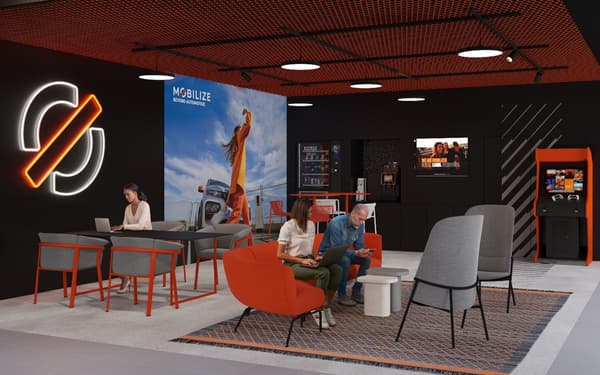Selling electric cars and operating the charging network that accompanies them is the model developed since the early 2010s by the American Tesla. Now it is also from Renault. This Monday, the group announced the launch of Mobilize Fast Recharge, its own network of fast charging stations.
200 fast charging stations
By 2024, Mobilize (the group’s mobility subsidiary) plans to install 200 stations in four European countries (France, Belgium, Spain and Italy), including 90 in France. The first stations will open in the south of France, we can read in the echoes. “Eventually, drivers of electric vehicles will be able to travel from Hamburg to Seville, with complete peace of mind,” specifies Mobilize in a press release, thus indicating that they offer a station “every 150 kilometers.” This seems to suggest other target countries.
However, instead of focusing on motorway service areas, Mobilize will set up shop near Renault dealership exits. “Each station will offer 6 ultra-fast charging points of up to 400 kW, one of the most powerful networks in Europe,” specifies Mobilize. Dedicated waiting areas with coffee and games will then be offered to customers, as shown in the photo below.

Open terminals beyond Renault owners
Although the goal of 100,000 fast charging stations in France has not yet been reached, Renault is not a pioneer in this market: Tesla and its superchargers or even Ionity are already present on the main highways. Renault also has the heavy burden of developing this expensive network while its finances are not at their best. According to Nicolas Schottey, leader of Mobilize Power Solutions, quoted in the echoesinvestment funds will support this deployment.
The concomitant announcement of the development of this network and the discussions between Renault and Nissan on the future of the Alliance have also been well noted by some observers. Therefore, Renault has worked on a cost-constrained network model.
The stations will not be reserved for drivers of Renault or Dacia, the group’s brands that offer electric vehicles. However, customers of the latter could benefit from preferential rates, depending on the echoes, as Volkswagen or Ford customers benefit from the Ionity network, in which these two brands are shareholders. These terminals will thus be open “24 hours a day (and) 7 days a week for all electric vehicle drivers,” specifies Mobilize.
Trust the dealers
Going through the Renault dealer network should allow a faster development of the project, but also reduce costs because, for example, the motorist reception building or part of the electrical installations are already present. Dealerships will also be involved in some of the maintenance.
In technical terms, Renault also wanted to control costs through “an intelligent energy management system combined with stationary storage, using electric vehicle batteries and, on certain sites, solar energy production through photovoltaic panels.”
However, Renault has not yet communicated about the cost of charging per kilowatt hour, nor the process to obtain charging cards.
Source: BFM TV

